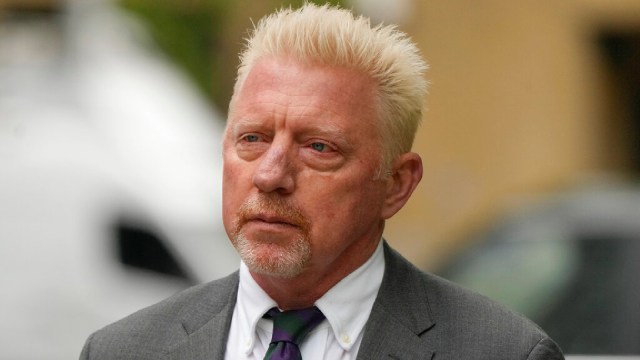‘Winning Wimbledon at 17 was too early, I was still a child’: Tennis legend Boris Becker looks back at his chequered life
Tennis legend Boris Becker, for one, now considers that winning Wimbledon at the raw age of 17 wasn't such a good thing after all, as it put him under intense spotlight and pressure at a stage when he was not even an adult.
 Former Tennis player Boris Becker arrives at Southwark Crown Court for sentencing in London, Friday, April 29, 2022. (AP)
Former Tennis player Boris Becker arrives at Southwark Crown Court for sentencing in London, Friday, April 29, 2022. (AP)Sport is generally considered a young person’s domain, but sometimes sporting success can come a bit too early, when a person is not prepared to deal with everything that comes with it, having an impact that lasts well beyond their playing careers.
Tennis legend Boris Becker, for one, now considers that winning Wimbledon at the raw age of 17 wasn’t such a good thing after all, as it put him under intense spotlight and pressure at a stage when he was not even an adult.
“Whatever you do, wherever you go, whoever you talk to, it becomes a world sensation. It becomes the headline of some of the most important papers of tomorrow. And you’re just trying to mature, just trying to find your feet in the world,” Becker, now 57, told BBC Sport in an interview.
With money, fame and adulation coming so early, it’s easy for a youngster to lose their way, he felt.
“I was too comfortable. I had too much money. Nobody told me ‘no’ – everything was possible. In hindsight, that’s the recipe for disaster,” he said, concluding “I’m happy to have won three (Wimbledon titles), but maybe 17 was too young. I was still a child.”
Apart from his three triumphs at SW19 in 1985, 1986 and 1989, Becker won the 1989 US Open and the Australian Open in 1991 and 1996, rising to the World No.1 ranking. He was part of the ruling troika of men’s tennis during that period along with Ivan Lendl and Stefan Edberg.
After his playing days, he did some television work and was also Novak Djokovic’s coach for a long time, helping the Serb win six Grand Slam titles.
But the German also made a lot of unwanted news about his private life and financial indiscretions, and had to serve eight months of a two-and-a-half-year sentence in a London prison for hiding £2.5m worth of assets and loans to avoid paying debts. He was released in 2023 and deported from the UK. He has now come out with an autobiography that recalls his time in incarceration.
“When you start a second career, everything is measured at this success of winning Wimbledon at 17. And that changed the road ahead tremendously,” Becker said. “If you remember any other wonderkid, they usually don’t make it to 50 because of the trials and tribulations that come after.”
All his experiences have provided Becker with a valuable perspective on life.
“You take accountability for your actions, which is very important because you cannot look back any more. You cannot change the past. You can only change the future because you live in today,” he said.
































